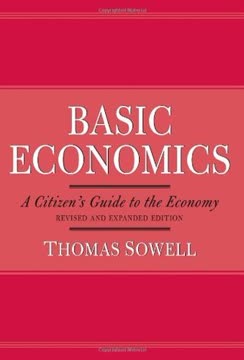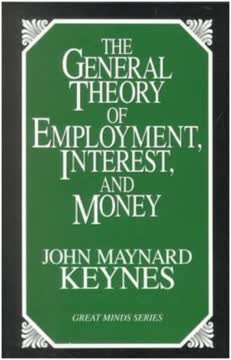Key Takeaways
1. Ownership: The Sociological vs. Legal Reality
From the sociological and economic point of view, ownership is the having of the goods which the economic aims of men require.
Natural vs. Legal Ownership. Ownership, in its truest sense, is the power to use and dispose of economic goods. This "natural ownership" is distinct from the legal concept, which focuses on who should have the goods, regardless of actual control. The economic significance lies in the ability to utilize goods for one's purposes, not merely in holding a legal title.
Consumption vs. Production Goods. The nature of ownership differs significantly between consumption and production goods. Consumption goods are used for immediate satisfaction, while production goods serve indirect needs by creating consumption goods. This distinction is crucial because the having of production goods can be divided in a society with a division of labor, unlike the exclusive having of consumption goods.
Implications for Socialism. Understanding the true nature of ownership reveals the core challenge for socialism. Attempts to reform or abolish ownership in consumption goods are futile, as the act of consumption inherently requires individual control. The real debate centers on the ownership and control of production goods, and whether a socialist system can effectively manage their allocation.
2. Violence and Contract: The Foundation of Social Order
All ownership derives from occupation and violence.
From Force to Law. The origin of ownership lies in occupation and often, violence. However, the transition from a state of war to a stable social order occurs when these initial acts of force are recognized and formalized into laws. This recognition, though not necessarily just in its origins, establishes a framework for peaceful interaction and economic activity.
The Social Contract Myth. The idea that law and the state arose from a conscious social contract is a rationalist oversimplification. While the concept of a social contract highlights the functional significance of legal order, it fails to account for the complex, often unconscious processes that shape social institutions.
Economic Action and Peace. Economic activity thrives under stable conditions and continuity, which are best assured by peace and the rule of law. Law, therefore, serves as a peacemaker, protecting existing rights and preventing arbitrary violence. This protection of property rights is essential for fostering economic growth and social development.
3. The Illusion of Equality in Socialism
The socialist idealism can to-day be looked upon as a general truth of public consciousness, though as one which is still, nevertheless, an open secret.
Equality as a Driving Force. The pursuit of equality is a central tenet of socialist ideology. However, the concept of equality is often vaguely defined, ranging from equality before the law to complete equality of income and wealth. This ambiguity allows socialists to appeal to a broad range of desires and resentments.
The Limits of Legal Equality. While liberalism champions equality before the law, it does not advocate for equal distribution of wealth. This distinction is crucial, as attempts to enforce economic equality often conflict with individual liberty and economic efficiency.
The Siren Song of Redistribution. The promise of equal distribution is a powerful tool for demagogues, who exploit the resentment of the poor against the rich. However, such promises are often unrealistic and fail to address the fundamental problems of production and economic growth.
4. Democracy's Role: Beyond Selection of Leaders
Liberalism champions private property in the means of production because it expects a higher standard of living from such an economic organization, not because it wishes to help the owners.
Democracy as a Pacifying Force. The primary function of democracy is not simply to select the most capable leaders, but to ensure peace and prevent violent revolutions. By aligning the will of the state with the will of the majority, democracy provides a mechanism for peaceful change and avoids the destructive consequences of political upheaval.
Economic Democracy vs. Political Democracy. Capitalist society embodies "economic democracy," where consumers, through their purchasing decisions, determine the allocation of resources. This contrasts with the socialist ideal of "economic democracy," where producers (workers) control production, potentially disregarding consumer preferences.
The Limits of Democracy. Democracy, while valuable for maintaining peace, is not a panacea. It can be susceptible to demagoguery and the pursuit of policies that undermine economic prosperity. Therefore, democracy must be tempered by liberalism, which emphasizes individual rights and economic freedom.
5. The Inevitable Failure of Economic Calculation Under Socialism
In a socialist community, economic calculation would not be possible.
The Impossibility of Rational Allocation. The core problem of socialism is the impossibility of rational economic calculation. Without market prices for the means of production, there is no objective way to determine the relative value of different resources and production processes. This makes it impossible to allocate resources efficiently and satisfy consumer demands.
The Role of Money and Prices. Money and market prices are essential tools for economic calculation. They provide a common unit of measurement and a mechanism for aggregating the subjective valuations of individuals. Without these tools, economic decision-making becomes arbitrary and chaotic.
The Illusion of Calculation in Kind. Attempts to substitute calculations in kind (e.g., using labor hours as a unit of value) are fundamentally flawed. They fail to account for the qualitative differences in labor and the scarcity of material resources, leading to inefficient and wasteful production decisions.
6. The Mirage of "Joy of Labor" and the Reality of Incentives
Even in a socialist community the natural factors of production would be limited in quantity and would therefore have to be economized.
The Myth of Inherently Pleasurable Work. Socialist ideology often assumes that labor can be made inherently enjoyable, eliminating the need for external incentives. However, this view overlooks the inherent disutility of labor, which stems from the expenditure of energy and the sacrifice of leisure.
The Importance of Incentives. Even in a socialist society, incentives are necessary to motivate individuals to overcome the disutility of labor and contribute to production. Without a direct link between effort and reward, productivity will inevitably decline.
The Limits of Altruism. While altruism and a sense of duty can play a role in motivating individuals, they are insufficient to sustain a complex economic system. Human nature, with its inherent self-interest, requires a system that aligns individual incentives with the collective good.
7. Socialism's Impact on Family and Personal Freedom
The physical having of economic goods, which economically considered constitutes the essence of natural ownership, can only be conceived as having originated through Occupation.
The Erosion of Family Autonomy. Socialist policies, such as the socialization of child-rearing and the abolition of traditional marriage, undermine the autonomy and stability of the family unit. By transferring responsibility for children to the state, socialism weakens the bonds between parents and children and diminishes the role of the family in shaping individual values.
The Suppression of Individuality. The emphasis on collective goals and conformity in socialist societies stifles individual expression and personal freedom. The state, as the ultimate authority, dictates not only economic activity but also cultural and intellectual pursuits, limiting the scope for creativity and dissent.
The Loss of Personal Choice. In a socialist system, individuals are assigned roles and tasks by the state, limiting their freedom to choose their occupations and pursue their passions. This lack of personal choice can lead to dissatisfaction and a sense of alienation, hindering individual fulfillment and societal progress.
8. Destructionism: The Inherent Nature of Socialist Policy
Socialism is not in the least what it pretends to be. It is not the pioneer of a better and finer world, but the spoiler of what thousands of years of civilization have created.
The Illusion of Progress. Socialism presents itself as a progressive force, promising a more rational and just society. However, in practice, socialist policies often lead to destruction and decline, undermining the foundations of civilization.
Capital Consumption as a Core Feature. A key characteristic of destructionist policy is the consumption of capital. By prioritizing immediate consumption over investment and long-term planning, socialist regimes deplete the resources necessary for future prosperity.
The Inevitable Cycle of Destruction. Because a fully socialist society is inherently unworkable, every step towards socialism inevitably leads to the destruction of existing economic structures. This creates a self-perpetuating cycle of decline, as each intervention necessitates further interventions, ultimately leading to chaos.
9. The Futility of Interventionism and the Road to Totalitarianism
The interventionists are not shrewd enough to realize that labour union pressure and compulsion are absolutely incompatible with any system of social organization.
Interventionism as a Slippery Slope. Interventionism, the attempt to improve capitalism through government interference, is ultimately self-defeating. Each intervention creates unintended consequences that necessitate further interventions, leading to an ever-expanding web of regulations and restrictions.
The Erosion of Economic Freedom. As government control over the economy increases, individual economic freedom diminishes. Prices, wages, and interest rates are fixed by the authorities, market exchange becomes a sham, and citizens are reduced to the status of civil servants.
The Incompatibility of Planning and Democracy. A system of planned socialism is fundamentally incompatible with democratic governance. To enforce its plans, the government must suppress dissent and curtail individual liberties, leading to a totalitarian state.
10. The Battle of Ideas: The Only Path to Overcoming Destructionism
Only ideas can overcome ideas and it is only the ideas of Capitalism and of Liberalism that can overcome Socialism.
The Power of Ideas. The triumph of socialism is not due to its inherent superiority, but to the widespread acceptance of its ideas. To overcome destructionism, it is necessary to challenge these ideas with a robust defense of capitalism and liberalism.
The Importance of Reason and Logic. Liberalism appeals to reason and logic, while socialism relies on emotions and resentment. To win the battle of ideas, it is crucial to present a clear and compelling case for the benefits of economic freedom and social cooperation.
The Role of Intellectuals. The masses follow the lead of intellectuals. Therefore, the key to overcoming socialism lies in convincing the educated classes of the merits of liberalism. Only then can the tide of destructionism be turned back and a path to prosperity and freedom be restored.
Last updated:
Review Summary
Socialism by Ludwig von Mises is a comprehensive critique of socialist economic systems. Reviewers praise its thorough analysis and relevance even a century after publication. Many consider it a definitive refutation of socialism, highlighting the impossibility of economic calculation under such a system. Critics argue it's ideologically biased. The book is seen as intellectually challenging but rewarding, offering insights into economic theory and the pitfalls of centralized planning. It remains influential in libertarian and classical liberal circles, though some find it dated.
Similar Books
Download PDF
Download EPUB
.epub digital book format is ideal for reading ebooks on phones, tablets, and e-readers.


















